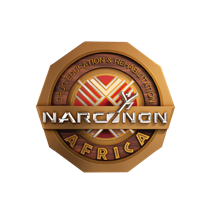The Hidden Cost: Businesses vs Addiction in South Africa

In the dynamic and often challenging South African economic landscape, business strive for operational efficiency, innovation and a robust workforce. However, a silent yet pervasive threat continues to undermine these objectives: substance abuse. Far from being merely a personal issue, drug and alcohol dependency within the workforce inflicts substantial and often unquantifiable costs of on businesses, directly impacting productivity, safety and ultimately, profitability. For discerning business directors and executives, understanding this impact is the first step towards safeguarding their most valuable asset: their people.
The Pervasive Impact on Business Operations
The ramifications of substance abuse extend far beyond individual health. In corporate context, it manifests as increased absenteeism, often accompanied by “presenteeism,” where employees are physically at work but significantly impaired in their performance. This leads to diminished output, compromised decision-making and a decline in the quality of work. Furthermore, the risk of workplace accidents escalates dramatically, jeopardizing not only the well-being of the affected individual but also that of their colleagues and potentially leading to significant liabilities and reputation damage. Employee moral can suffer, as non-abusing staff may bear an increased workload or witness erratic behaviour, fostering a toxic work environment. The financial toll is substantial, encompassing not just lost productivity but also increased healthcare costs, higher employee turnover and the expense of recruiting and training replacements. This deeply impacts the bottom line and hinders sustainable growth in the South African market. Effective drug rehabilitation strategies are thus not just a social imperative but a crucial business investment.
Salvaging Valued Staff: A Strategic Imperative
For business leaders committed to their employees and the long-term success of their enterprises, abandoning a valued staff member to the grip of addiction is neither a humane nor a commercially astute option. Instead, a proactive and supportive approach to addiction treatment and recovery is essential. Companies have a vital role to play in offering pathways to recovery, rather than merely punitive measures. Implementing comprehensive employee assistance programs (EAPs) that include confidential access to drug rehabilitation centers can make a profound difference. These programs demonstrate a commitment to employee well-being, fostering loyalty and reducing the considerable costs associated with replacing experienced personnel. A strategic emphasis on recovery from addiction should be integrated into corporate wellness initiatives, promoting a culture where seeing help is encouraged, not stigmatised. Investing in professional drug and alcohol rehabilitation services, particularly those offering a holistic and drug-free approach, enables employees to return to work as fully contributing, unburdened professionals.
Substance abuse presents a formidable challenge to South African businesses, eroding efficiency and endangering staff. However, the narrative need not be one of loss and decline. By acknowledging the systematic impact of addiction and strategically investing in comprehensive rehabilitation programs, particularly those that offer a clear path to drug-free living, employers can not only salvage their valued staff but also enhance their organizations overall resilience and productivity. Prioritizing employee wellness through effective addiction recovery support is not merely a philanthropic gesture, it is a shrewd business decision that safeguards human capital and fosters a more robust and thriving South African economy.

